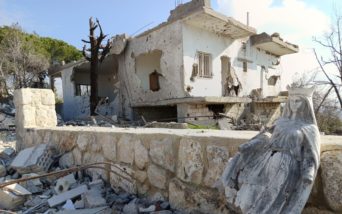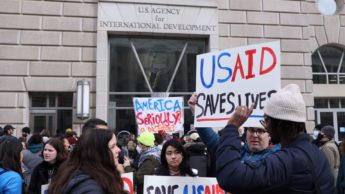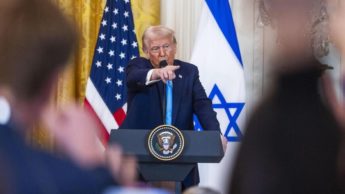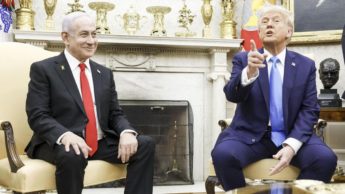
Andrei Lankov: «North Korea looks like Stalin’s Ussr»
Andrei Lankov, russian historian, expert of East Asia and specialist in Korean studies, professor at Kookmin University in South Korea, spoke with Tempi.it about people’s situation of North Korea, the government strategy of Kim-Jong Eun and the possibility of reconciliation between South and North.
First of all, a personal question: how it’s happened that you attended the Pyongyang’s Kim Il-sung University in North Korea?
Actually, back in the mid-1980s I would probably much prefer to study in South Korea, but I had no choice. I was lucky to attend Koran department of the Leningrad Stat University in the early 1980s, at the time when the students exchanges between the USSR and North Korea were relatively active. Between the early 1960s and the late 1970s North Koran students did not visit the ‘revisionist’ Soviet Union, and only a handful of the Soviet students attended Korean schools. But then things changes, and for a decade the students exchanges worked well. Between 1980 and 1990 most of the Soviet students who majored in Korean studies went to Pyongyang. Frankly, Korean studies were not my first choice: I began as a China major, but changed to Korea because it would give many more opportunities to find an academic teaching job. As you see, my choice of job was determined combination of luck and practical considerations – even though I have always wanted to be historian “(always” means since the age of six), and was interested in East Asia since middle school.
Recently, the “World Food Program” published a video reportage about the famine in North Korea. How the economic crisis influenced and, if it is the case, worsen it? How many people are going under it and it is North Korea able to face it?
The economic situation has not worsened considerably. Actually, over the last few years the situation has improved, not worsened. Every year we get the reports about the coming famine, but this is increasingly waiting for Godot. The rumours are much encouraged by the North Korean government which wants to squeeze more aid from the outside world. In the past, they used to lie about their prosperity, but in the recent decade or so the North Korean leaders do not see any problem with painting their situation as bleak as possible. There are no signs of looming famine (apart from the reports of Western media, of course). Food prices at North Korean black (but thriving) markets are relatively stable, and a number of independent travellers confirm that even in the remote countryside people look less malnourished than usual. Of course, a majority of the North Koreans are malnourished, but this has been the case for many, many decades. But they are not starving to death.
North Korean premier Choe Yong-rim went to China few days ago and months ago Kim Jong Il visited the communist country, too. How the relationships between China and North Korea are evolving? What is the main content of these trips and the aim of the visits?
It is not widely understood, but for long time when South Korea and US, technically still at war with Pyongyang, have been the major providers of aid to this country for some 15 years. According to the WFP database, throughout 1995-2009 period (the time when the food crisis was most acute) North Korea received a total of 12.3 million metric tons of food aid. Of this total, South Korea provided 3.2 million ton or 26% of the total, China has shipped 3.0 million metric ton (24% of the total) and the US provided 2.4 million metric ton (19%), while Japan shipped 1.3 million ton (10.6%). However, the US aid has been largely frozen since 2002, and the South Korea aid dried up in 2008 when the new, right-leaning administration came to power in Seoul. So, China has become the only sponsor of North Korea – much to the displeasure of the North Korean leaders who always prefer to have a number of sponsors whose conflicts and rivalries they can use. So, North Korean leaders have to visit China, obviously in order to beg for more aid.
Everybody are sure Kim Jong Eun is going to replace his father. What do you think about him and how North Korean politics could change? When he will succeed his father?
The last question is easy: as soon as his father dies. Once Kim the Second is dead, Kim the Third will be in power. It might happen tomorrow, it might happen in 15 years. Actually, the longer Kim JongIl lives, the easier and smoother the transition will go. In the remaining time Kim Jong Eun will prepare the necessary power base, and will learn a bit of statecraft. The first question is, frankly, impossible to answer. North Korean top politics is very opaque. It is, perhaps, even more opaque than it was the case with the Kremlin under Stalin. Most of the statements about Pyongyang factions and power struggle you see in media are guesses, and not necessarily educated guesses at that. We do not know much about Kim Jong Eun. But if he wants to stay in power, it makes sense to continue with his father’s policy: no reforms, zero tolerance of the political dissent, no denuclearization. This is how they have outlived all ellow regimes. The strategy works, even though I am not sure whether Kim Jong Eun understands this. At any rate, we do not know now.
Few days ago, survivors from gulags, like that of Yoduk and Buckchang, spoke in Usa about their experience of terror and pain. What is the gulag situation today? How many people are still closed and forced to live there?
Again, no data. The recent estimates are between 150,000 and 200,000 – roughly the same ratio of the political criminals to the general population as in the Soviet Union in the last years of Stalin’s rule. Most of them are family members of the political criminals. However, it appears that the regime is becoming less repressive of compared to old times. The average North Korean has less chances to get arrested for a political crime than 15 or 25 years ago.
Last week a delegation of seven religious leaders entered in North Korea. Which is the situation of religious freedom in the country? Do you think it could represent a change in the Korean politics about this matter?
They used to invite the religious leaders since the 1970s, occasionally. For some time, from the mid-1950s to the mid-1970s, North Korea proudly described itself as a “country from superstition” (“superstition” meaning “religion”). But in the 1970s they claimed that there were some religious associations in the country, and in the 1980s they opened few churches in Pyongyang which are shown to the visiting delegations – just to prove to the world that they have religious freedom. They have a Catholic church, a Protestant church, and an orthodox church. It is not clear whether these churches are pure show, or whether some religious activity, however controlled and restricted, does take place there.
Lastly, do you think the reconcilation between North and South Korea is possible? Any step toward peace has been made?
More stable relations are possible – if the South will resume unconditional aid to Pyongyang, that is. However, the North Korean regime will not politically survive the serious increase in exchanges. The main problem is a huge economic gap between two Koreas. The Kim family regime regime lives next to a country whose people speak the same language and are officially described as “members of our nation”, but who enjoy a per capita income at least 15 times (may be even 40 times) higher than that that of the North Korean people. This is the world’s largest per capita income difference between two countries which share a land border. To put things in comparison, the income ratio in divided Germany was merely 1:3, and even this was enough to have the East Germans to overthrow the regime as soon as they had an opportunity to do so without fear of the Soviet retribution. No the average North Korean does not know about this gap – for decades the official propaganda told that the South is a land of poverty and terror. If ordinary North Koreans become fully aware of the prosperity of their Southern brethren, the regime’s legitimacy would suffer a major blow and, quite likely, would become untenable. Therefore, North Korea does not need reconciliation in a strict sense. They want South Koreans to send unconditional aid, but the North Korean leaders understand that a dramatic growth of exchanges might be destabilizing for the regime.



0 commenti
Non ci sono ancora commenti.
I commenti sono aperti solo per gli utenti registrati. Abbonati subito per commentare!